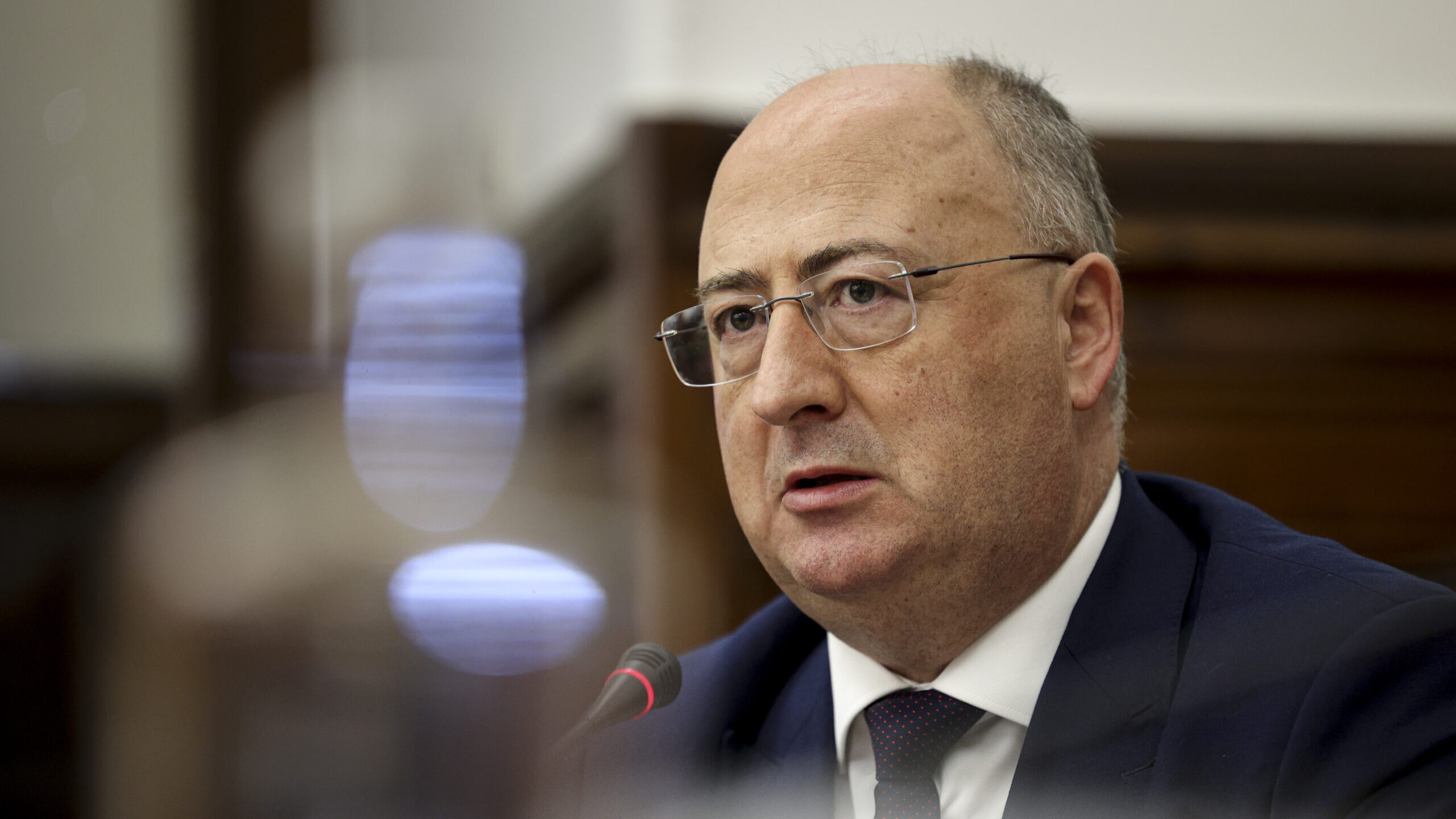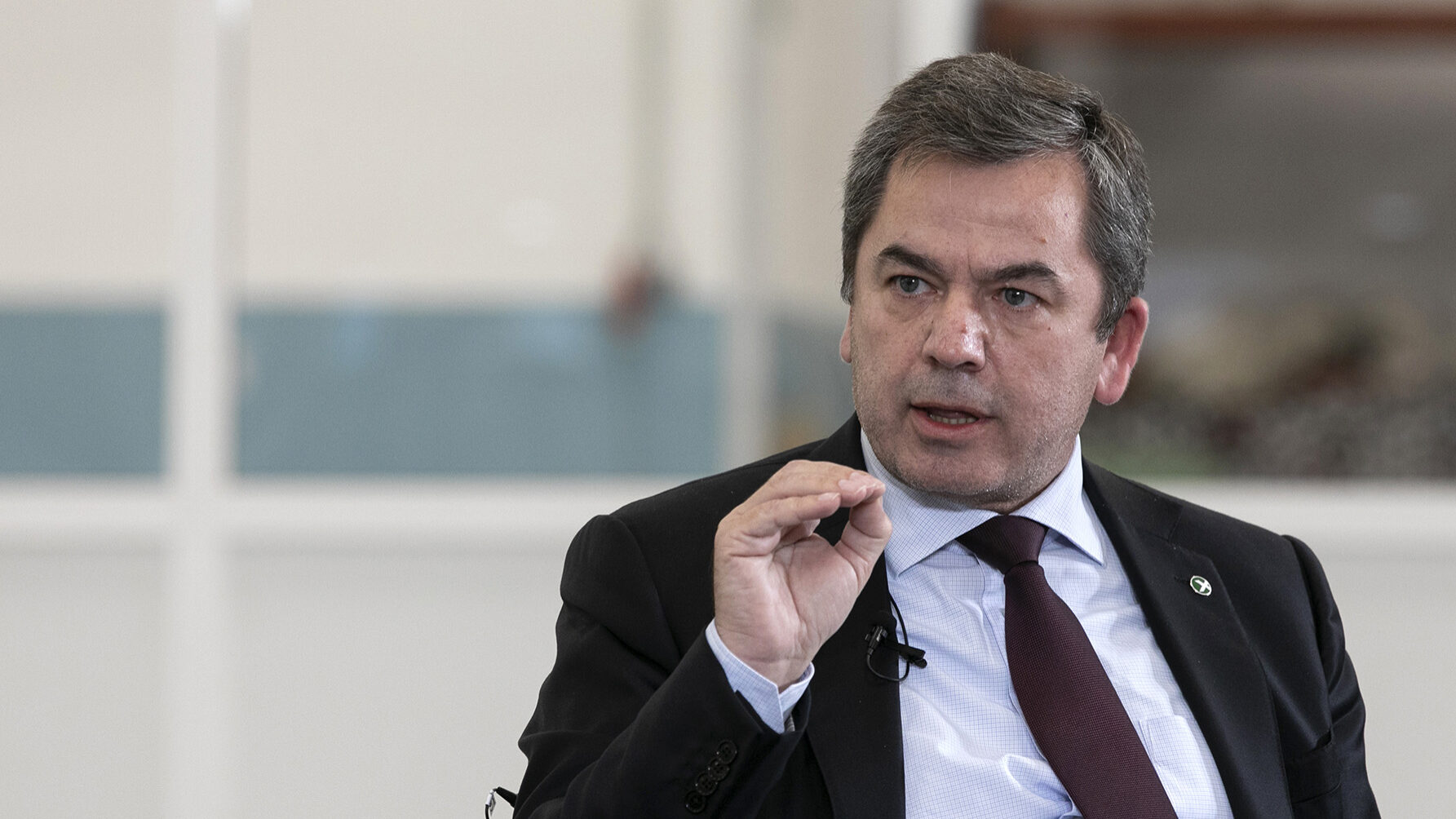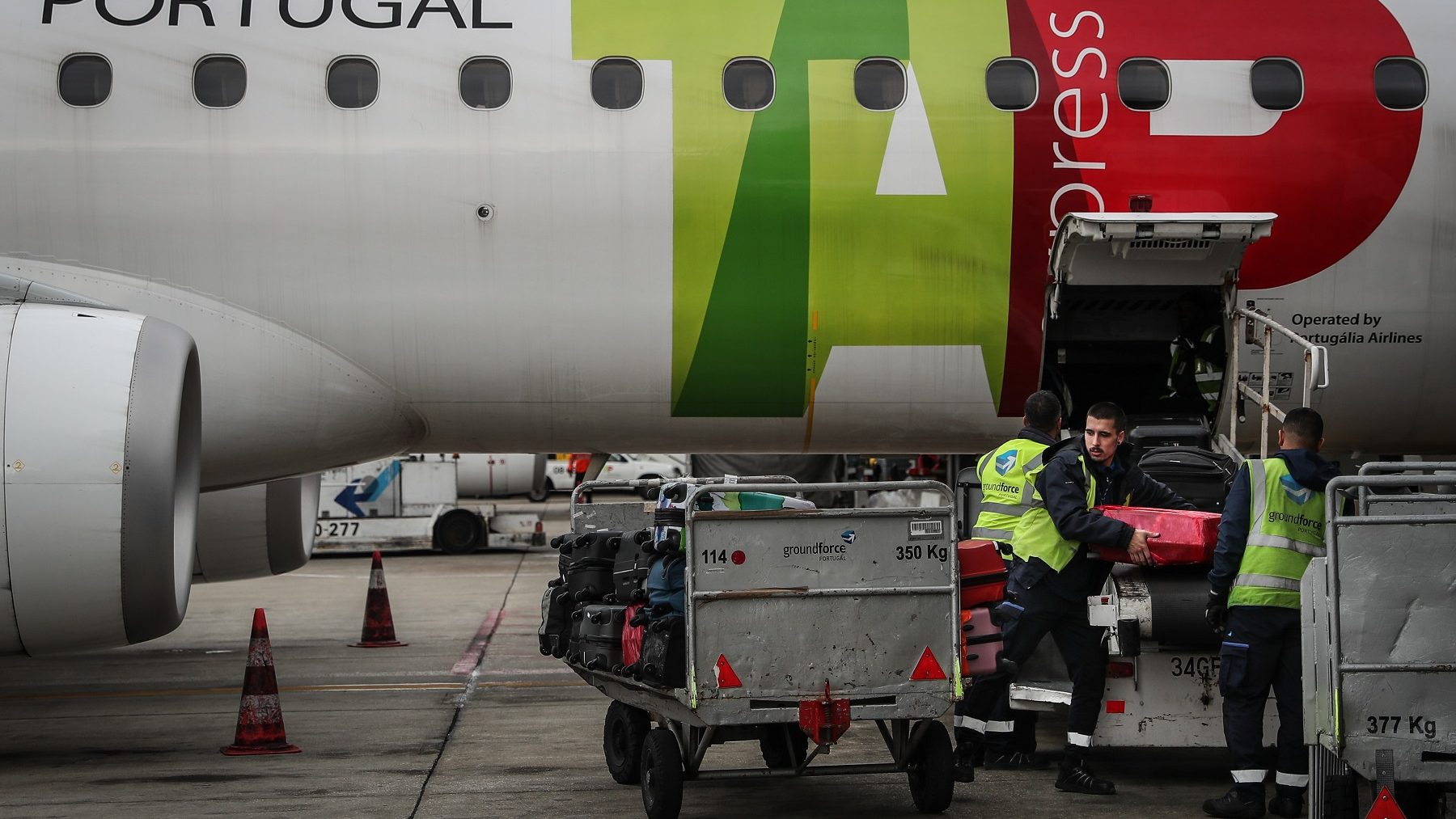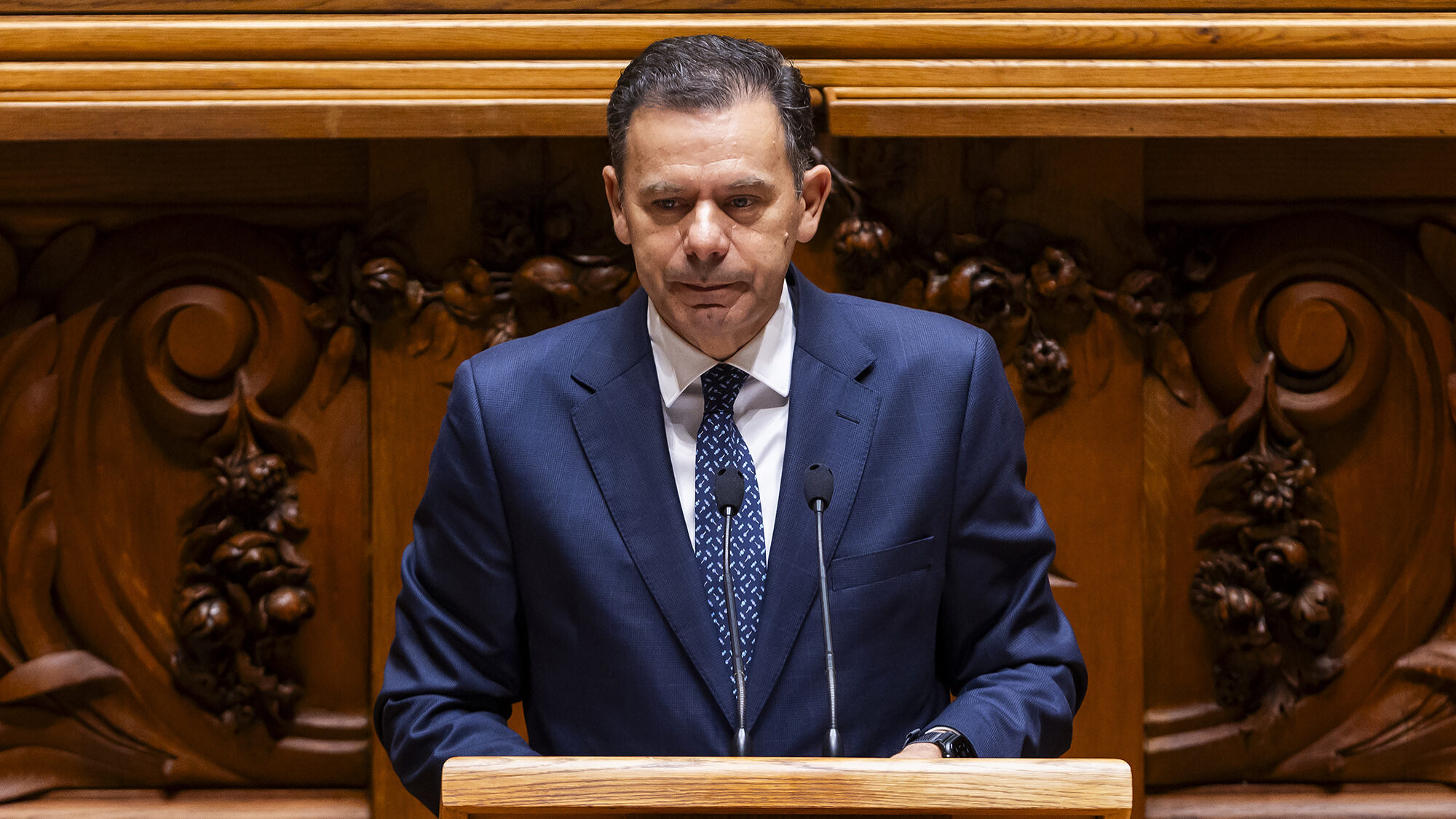Portugal bets on separating Cohesion from Agriculture and maintaining the power of the regions in the new EU budget
The ministers for the Economy and Cohesion and for Agriculture told ECO what the conditions are for Portugal to consider that it has "achieved the essentials" of its demands.
Portugal knows that it won’t be able to influence Brussels’ position on the expected cuts to the Cohesion Policy and the Common Agricultural Policy, so it is betting on ensuring that they remain separate programmes and that the regions have a say in policy-making.
“Portugal did what it had to do. We sent a letter in good time with the Portuguese position saying what we stand for”, said the Minister for the Economy and Cohesion, Manuel Castro Almeida, on the sidelines of the first “Conversas com Fomento” (Conversations with Development), in a reference to the missive to which ECO had access, in which the Portuguese government emphasised that the “increase in new areas of expenditure in the coming years cannot be at the expense of existing policies and the fundamental principles of the Union”.
The government argues that “economic growth must go hand in hand with Cohesion” and that “the allocation of funds must be shared and participated in by the whole country”. “We want there to continue to be funds dedicated to Agriculture and funds for Cohesion. These are very specific rules, very precise procedures and this mixture of funds would certainly complicate the functioning of the administrative apparatus that has been set up so that the money can reach people quickly and efficiently”, explained Castro Almeida.
“If the rules are guaranteed that European funds will continue to be directed above all to the poorest regions, something different from the Recovery and Resilience Plan system, and if the participation of the different state institutions is guaranteed — Central, Regional and Local, and not as in the PRR where it is the Central State that does everything — and the separation of Cohesion funds and Agricultural funds, we will have achieved the essence of our demands”, summarised the minister.
On Wednesday, the European Commission will present the first package of proposals for the next Multiannual Financial Framework (MFF) 2028-2035. On the table, according to Politico, is a 20% cut in funding for Agriculture and Cohesion. The aim is to redirect funds from “old priorities” to new challenges, such as Defence, Innovation and EU Enlargement. Cuts may be the solution, given that some Member States, such as Germany and France, are opposed to increasing contributions to the EU budget.
This 20% corresponds mainly to the commitments made as part of the European bazooka, which amounts to 650 billion euros and must be paid at a rate of 30 billion per year.
“The biggest constraint is the payment of the debt arising from the PRR subsidies”, the Minister of Agriculture and Fisheries, José Manuel Fernandes, told ECO, also on the sidelines of the first ‘Conversas com Fomento’. “I was in the negotiations for the last multiannual financial framework and we didn’t manage to get this debt payment — which goes from 2028 to 2058, it’s a temporary one over all these years — above the limits of the multiannual financial framework, even though it’s within the financial framework”, he recalled.
“Staying above the limits would mean having no impact on the other programmes and also on what the policies are”, explained the former MEP. “If debt payments are above the limit for payments under the multiannual financial framework, there won’t be a reduction of between 15% and 20%, because the cost of the PRR debt is between 15% and 20% of the annual budget. If it stays within that limit, it will be reduced by 15% to 20%, even with a new Defence challenge”, he said.
Asked if he takes a small cut in the Cohesion and Agriculture funds for granted, Castro Almeida said that “this is an issue that Portugal’s position is not going to change”.
“It’s not Portugal’s position that will change the options. I’m aware that the Commission is going to propose the highest possible figure, knowing that there are new missions, new commitments, Defence, Enlargement and the payment of the PRR loan. The Commission is not in an easy position”, he recognises.
“The President’s [Ursula von der Leyen] commitment is to allocate as much effort as possible to Cohesion.” “That’s what we’re waiting for”, Castro Almeida concluded.
“The solution to avoiding cuts would be to increase own resources, but the countries known as frugal are opposed to increasing their contribution to the EU budget, which is currently set at 1% of Gross National Income (GNI). “We have a very small EU budget, which is around 1% of GDP”, said José Manuel Fernandes.
“In order to guarantee the strategic role of the budget and the realisation of well-identified common objectives, avoiding the serious risk of over-promising and under-delivering, the Union budget will have to go well beyond the current GNI threshold”, wrote the government in the letter delivered to Brussels last week. Portugal also argues that “all rebates should be abolished” and that the annual adjustment of the MFF for inflation should be revisited, “in order to better reflect the expected evolution of prices, taking into account the lessons learnt from the current programming period and the significant deviation from the agreed fixed deflator”.
Adjustments, also known as corrections or reimbursements, are financial mechanisms that aim to adjust the contributions of EU countries, especially the main net contributors to the budget. In this current budget, Denmark, Germany, the Netherlands, Austria and Sweden will receive back part of their contributions.
For some member states, the solution would be to increase their own revenues, in particular by taxing large technology companies, taxing CO2 emissions or the European trade in carbon emission licences. But for others, the way forward could be to issue new debt to pay off the debt that is coming due. An idea that Portugal is not opposed to, as it made clear in the letter delivered to Brussels. “Debt can be rescheduled. It’s always possible, and it’s another solution”, reiterated the Agriculture Minister.
On Friday, the Commission proposed three new taxes targeting non-recycled electrical waste, tobacco products and large companies in the EU with a turnover of more than 50 million euros, according to Politico, to the detriment of a tax on digital companies, which is seen by many as giving in to Donald Trump’s demands. ECO knows that taxing tobacco is not an idea that appeals to the Executive, not least because it is an important source of tax revenue for the Portuguese state. In the 2025 State Budget, the government has forecast revenue of 1.63 billion euros for this year, an increase of 4% on the previous year.




